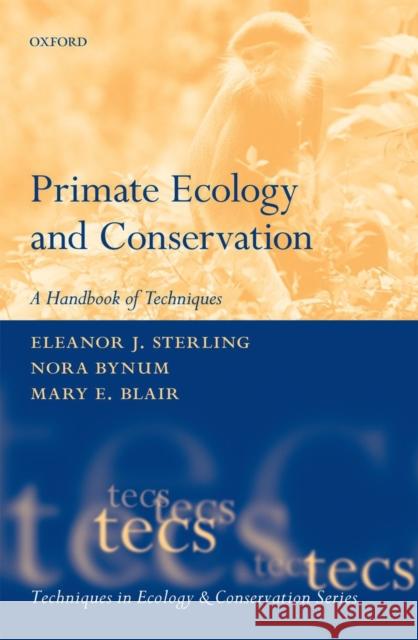Primate Ecology and Conservation: A Handbook of Techniques » książka
Primate Ecology and Conservation: A Handbook of Techniques
ISBN-13: 9780199659456 / Angielski / Miękka / 2013 / 448 str.
The study of primate ecology and conservation has advanced rapidly in recent years. This practical volume brings together a group of distinguished primate researchers to synthesize field, laboratory, and conservation management techniques for primate ecology and conservation. The synthesis focuses on new and emerging field methods alongside a comprehensive presentation of laboratory and data analysis techniques, as well as the latest methods for determining conservation status and conservation management. This book's particular focus is on innovative ways to study primates in a changing world, including emerging methods such as non-invasive genetic techniques and advanced spatial modeling. In addition to synthesizing field and lab methods, the authors also discuss data interpretation, as well as important guiding questions and principles for students and researchers to consider as they plan research projects in primate ecology and conservation such as: how to choose a field site, acquire research permits, connect with local authorities, communities and researchers, and many other considerations. Although three chapters are dedicated to conservation methods, consideration of conservation status and threats to primate populations are considered throughout this volume where appropriate. This latest publication in the Techniques in Ecology and Conservation Series aims to provide a practical empirical reference text with an international scope, appropriate for graduate students, researchers, and conservation professionals across the globe.











